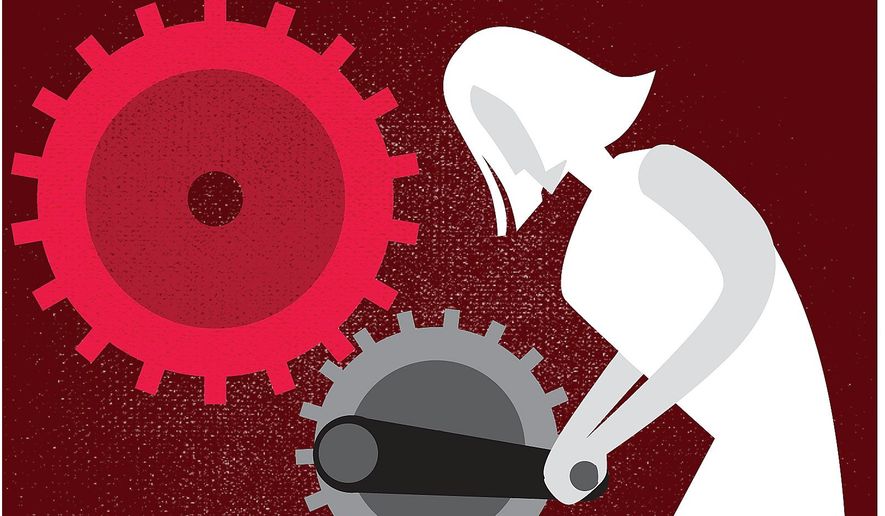OPINION:
There are a number of international organizations and U.S. government agencies that should be abolished because they both destroy wealth and liberty. Officials of the Trump administration understand the problem but do not have the ability to take the corrective measures because of the lack of political will in Congress to do the right thing.
Given the situation, the administration has opted for the second-best choice, and that is to select highly experienced and qualified individuals to lead reform efforts in the organizations and agencies they have been appointed to head. One of the worst international organizations is the Organization for Economic Cooperation and Development (OECD), based in Paris. The OECD started out in the early 1960s as an organization to promote trade among the richest countries and collect and publish economic data. All of that was highly useful, but over the years it morphed from a constructive economic-policy organization to a destructive one.
Good economists understand that tax competition among nations, like almost every form of competition, is a good thing. The high-tax countries like France for obvious reasons did not like tax competition because many businesses with their jobs decided to start up in or move to lower-tax jurisdictions. The high-tax countries succeeded in capturing the management of the OECD and in the 1990s began a war against low-tax countries — which impeded economic growth and job creation everywhere.
The bureaucrats at the OECD (who enjoy tax-free salaries) also allied themselves with the global big-government lobby. Poverty, as would be expected, normally declines as countries become richer; but this is an inconvenient fact for those who make their living in the anti-poverty industry, thus the concept of “relative poverty” was invented — so that no matter how rich the poor became in absolute terms, they would still be labeled as poor, as long as there were many others who were richer. As a result of using this dodgy, dishonest and misleading data, the OECD has made the crazy assertion that poverty is higher in the United States than in Greece, Portugal and Turkey.
Fortunately, the administration has an experienced candidate for the U.S. ambassador to the OECD, Mary Toman, who understands the intellectual and financial corruption at the OECD and has promised to work for reform. She should be nominated.
The Export-Import Bank is a U.S. government entity that was established decades ago, in 1934, to provide low-cost financing to U.S. exporters to make their products more attractive to foreign buyers. The argument has been that many foreign governments subsidize their exporters so the United States should play this tit-for-tat game. (Note: I have been on the record for several decades advocating the abolition of the Ex-Im Bank as an unwarranted subsidy to a handful of very large firms.) Over the years, companies such as Boeing and General Electric have received the bulk of the largess from the Bank while small exporters have been shut out.
The administration has selected Kimberly Reed to reform the Ex-Im Bank and put U.S. taxpayers first, which she has promised to do. She just had her hearing before the Senate and is now waiting for her confirmation vote, which would be in the public interest.
The Bureau of Consumer Financial Protection (BCFP, previously known as CFPB) was a brainchild of Sen. Elizabeth Warren and was set up under the Obama administration at the Federal Reserve. Congress was deliberately excluded from authorizing and appropriating its budget and denied necessary oversight. The BCFP has operated as a law unto itself and is now in court where its constitutionality is being challenged. The president named OMB director Mick Mulvaney as acting head of the BCFP to clean up the management mess created under the previous administration.
The president has nominated Kathy Kraninger to head the BCFP. She has come under furious attack by Ms. Warren and her allies, who advocate almost unlimited government power as long as they get to say who exercises it. To continue and strengthen the reform agenda begun by Mick Mulvaney, Kathy Kraninger should be confirmed.
Early on, Mr. Trump selected Gov. Nikki Haley to be ambassador to the United Nations, where she has done an outstanding job. U.S. taxpayers spend approximately $10 billion per year to support all of the U.N. programs (i.e., dues, peacekeeping, etc.), accounting for approximately a quarter of U.N. expenses. The United States spends more than all of the other members of the Security Council combined.
Last year, the Trump administration negotiated a $600 million reduction in the U.N.’s 2017 peacekeeping budget and a $285 million reduction in the U.N.’s 2018-19 operating budget. Much more needs to be done because, as former U.N. Secretary General Boutros Boutros-Ghali admitted, “perhaps half of the U.N. workforce does nothing useful.”
Again, ideally, all of the above organizations and agencies should be abolished. Mr. Trump is left with the second-best option of reforming and downsizing them —and relying on a group of very talented women to accomplish the task. Time will tell if they are up to it.
• Richard W. Rahn is chairman of Improbable Success Productions and on the board of the American Council for Capital Formation.




Please read our comment policy before commenting.